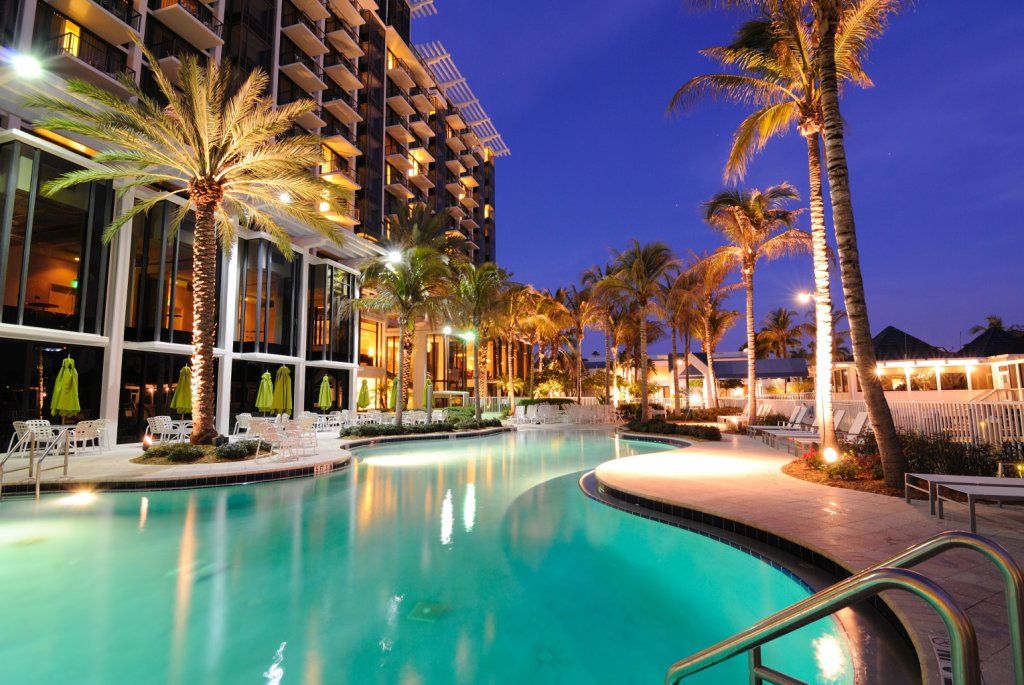How Hotels and Resorts are Rebounding in 2023

Worldwide, the hotel and resort industry peaked at $1.52 trillion in 2019. Following the travel restrictions during the pandemic, the industry is still in recovery mode. Unsurprisingly, the market decreased significantly in 2020 and 2021 – dropping below $1 trillion.
This year, however, hospitality is on the up and up with a market size forecasted to reach $1.21 trillion and the U.S. Travel Foundation is expecting an increase in travel spending for the year compared to 2022. Pent-up demand, decreasing COVID cases, and emerging travel trends are driving much of the activity, renewing investor interest in the sector.
Post-Pandemic, Vacation is the Priority
Vacationers are showing no signs of financial worry, as travel rates are undeterred by the current economic volatility. Research from McKinsey shows that while people are concerned about macroeconomic shifts, it is not enough to stop most from taking their vacation this summer.
In 2022, air traffic hit about 70% of pre-pandemic levels globally, reports Forbes, and for last summer, global hotel occupancy reached an increase of around 5% over the summer of 2019. The U.S. Travel Foundation is forecasting an increase in travel spending for 2023 compared to 2022.
The ongoing strength of the U.S. dollar is also fueling travel, making global destinations more attractive to travelers looking to capitalize on the favorable exchange rate.
Spring break and the 4th of July weekend are expected to be some of the biggest travel periods for the year. USA Today reports that “for the first time since 2019, Americans are also considering traveling internationally for spring break. Last year, TSA checkpoint travel numbers showed a 15% increase for the Thursday and Friday before the Fourth, and this summer, hoteliers are anticipating an even stronger holiday weekend.
Hotels and Resorts Finding Their Footing
In a recent survey, 78% of travelers indicated they are comfortable staying in a hotel, while 61% said they were comfortable staying in alternative accommodation.
Hidden fees, safety concerns, and oversaturation have many travelers turning away from short-term vacation rentals like Airbnb and opting instead to book with a hotel or resort.
Homeowners looking to rent out their homes during Super Bowl LXII in Arizona, for example, were expecting to be flooded with bookings. Instead, The New York Times reported, these rentals sat at 50% occupancy despite two of the world’s largest sporting events descending on the area on the same weekend.
Although demand for hotels may be ticking up, overall construction is slowing due to costs and financing challenges. Per The Wall Street Journal: “There were roughly 612,000 hotel rooms in the active development pipeline at the end of last year, down 2.6% from the year before and 6.1% lower than in 2019” Additionally, about 15.6% fewer rooms were in the planning phase at the end of 2022 compared with a year prior.
Hotel conversions, however, are growing in popularity among big brands like Hilton looking to expand amidst the contracting construction pipeline.
New Trends in Travel
Several emerging travel trends, such as hush trips, are factors contributing to hospitality’s resurgence.
Due to the pandemic, the number of people working from home tripled. This shift toward remote work led to the emergence of a movement called digital nomadism, which is defined as “remote workers who travel to different locations on a regular basis. They use modern technology to work from anywhere in the world.” Hotels and resorts that offer reliable Wi-Fi and have work spaces is key to attracting these nomads or those on “hush trips.”
Outdoorsy vacations are also coming to the forefront for many travelers seeking new adventures and the desire to connect with nature. According to Bisnow, “hospitality offerings that focus on the outdoors appear to be an area of growing interest for investors.”
The younger generation of vacationers are also the most willing to pay more. McKinsey reports that younger travelers are far more willing to pay extra for green initiatives than older respondents, and an Expedia study found that 80% of their survey respondents between 18 and 34 were willing to pay more to upgrade their experience.
A Trusted Guide in Commercial Real Estate
Coldwell Banker Commercial® provides Commercial Real Estate Services from Property Sales and Leases, to Property Management. Learn how our expansive network of Independently Owned and Operated Affiliates and Real Estate Professionals use their in-depth knowledge of the local market and industry trends to help businesses and investors navigate the complexities of the commercial real estate landscape.






